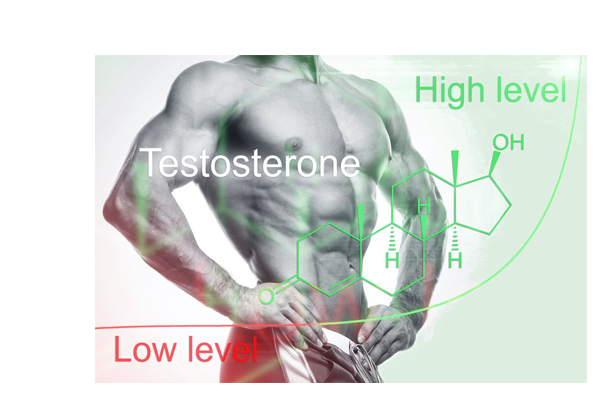Testosterone and Post-Partum in Men
Post-partum depression is a serious and common disorder which affects women following the delivery of a new baby. Linked with hormone levels, lack of sleep, and other factors affecting a woman’s physical and emotional state, women with post-partum depression feel sad, experience mood swings, and may experience negative thoughts involving their baby and self-harm. While men experience emotional and physical changes differently following the birth of a baby, recent studies support the idea that men may have hormonal changes which affect mood as well.
How is this post-partum male experience related to low-testosterone and is there a way to fix it? Discover the truth about “Low T”, testosterone replacement in Las Vegas, and ways to increase sexual intimacy following the birth of a child, here.
Low Testosterone After a Baby
There are many reasons why men experience symptoms relating to post-partum, including a reduced number of hours of sleep each night, poor performance at work, less sexual intimacy with a partner, and anxiety caused by an increase in responsibility at home. Many of these symptoms are also related to hormonal imbalances, which can cause sleep problems and anxiety levels to fluctuate. Fortunately, Testosterone Replacement therapy in Las Vegas is one of the available options to cope with these changes. According to Market Watch, “Men may be more likely to show signs of depression specifically if they were stressed during the pregnancy, another report published in JAMA Psychiatry found. About 2.3% of the 3,500 expecting fathers from New Zealand studied showed signed of depression before the baby was born, and nine months after the child arrived, postpartum depression affected 4.3% of fathers.”
Some other symptoms men may notice as testosterone levels drop include weight gain, fatigue, foggy thoughts while trying to focus or concentrate, muscle loss, hair loss, and low libido. Noticing these emotions and physical changes early is crucial to fast treatment and reduced impact on a man’s social, romantic, and work life.
The Study and Results
The study in question followed 149 couples, especially men, following the birth of a child. During the study men were instructed to provide blood samples to test the level of testosterone when children were at the age of 2-months, 9-months, and 15-months. Most men showed lower levels of the male sex hormone at 2 and 9 months, with levels finally beginning to balance out at 15-months. This would coordinate with the above idea that the hormone loss was related to lack of sleep, anxiety, and other factors included in becoming a new parent. By 15-months parents have become used to a schedule, babies begin to sleep and eat more regularly, and life resumes with minimal distress compared to that of a new baby. According to the study that was published in the Journal of Hormonal Behavior last year, “Following the birth of an infant, decreases in testosterone and increases in depressive symptoms have been observed in fathers. Paternal testosterone may reflect fathers’ investment in pair-bonding and paternal caregiving and, as such, may be associated with maternal and familial well-being. This study tests associations between paternal testosterone, paternal and maternal postpartum depressive symptoms, and subsequent family functioning.” Men can help treat these symptoms with a visit to a Testosterone Clinic Las Vegas.
Another interesting fact noticed throughout the study was that when men experienced low levels of testosterone and experienced post-partum depression, there was a more intense response in their partner. The level of stress and negative emotion seemed to reflect itself from one partner to the other, possibly causing higher levels of stress and strain in both.
Receiving Help Through Testosterone Replacement Las Vegas
While testosterone replacement clinics across Las Vegas don’t normally specialize in post-partum depression, they do focus on low-testosterone levels and offer treatment options which can rectify these hormonal imbalances and cause life to resume at a more normal level. Healthline writes, “Depression, anxiety, irritability, and other mood changes are common in men and women with low T. However, researchers aren’t sure what causes the correlation. Testosterone therapy can boost the mood of many people with low T, particularly older adults.” Sometimes low testosterone and depression host similar resulting symptoms, making them difficult to place. This is when expert services from a testosterone-based clinic come in handy.
In most cases of Low T, there are more physiological symptoms vs. psychological symptoms, also both are prevalent. Men suffering from low testosterone levels are likely to feel down due to some of the physical changes in their body, such as low energy levels, loss of sexual appetite, weight gain, and hair loss. Some men may also experience more advanced and unusual symptoms, such as enlarged breast tissue. These changes often result in feelings of inadequacy and depression.
If you’ve just had a baby and experiencing depression as well as some of the physical symptoms mentioned above, speak to your doctor about the possibility of testosterone being a contributing factor. You can also choose to visit a low testosterone clinic in the Las Vegas area and speak to one of the experts in house. Low T clinics are safe, affordable, and private, putting client discretion and overall health at the forefront of any and all treatment plans.
Seeking help for low-T following the birth of a child can help improve your mood, physical ailments resulting from the loss of the male sex hormone, and in conjunction, your relationship with your partner. Visit a clinic for a one on one evaluation and see what a difference it can make for yourself.

